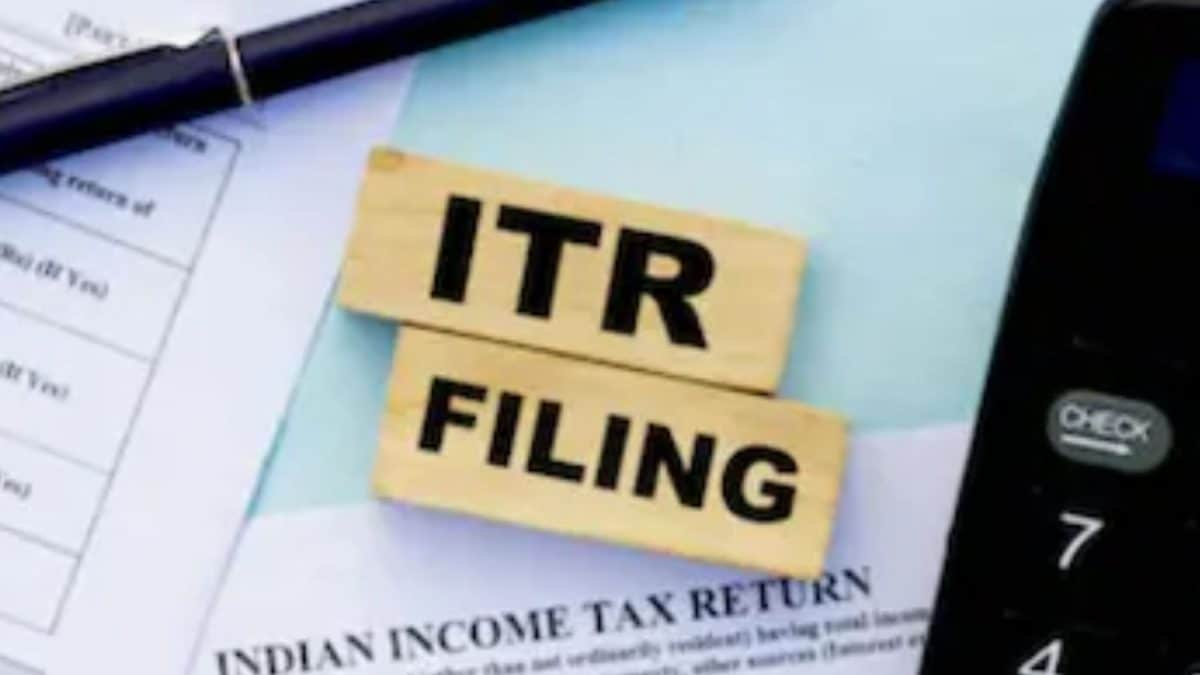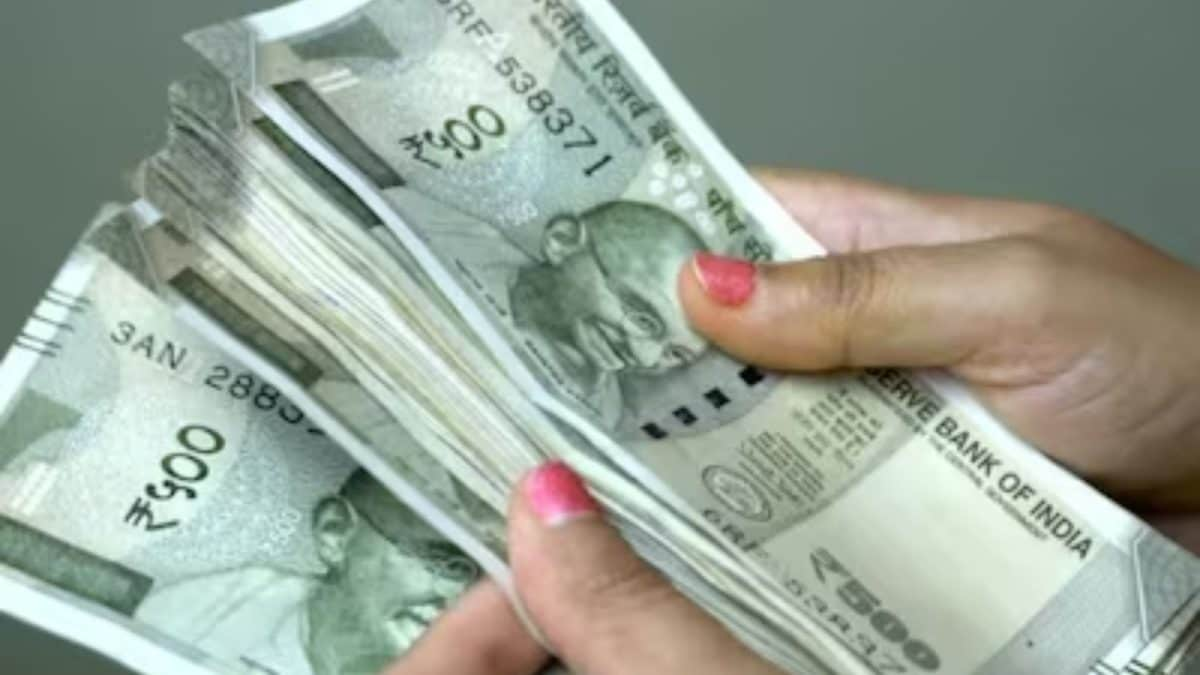Business
Relying Just On EPF? Here’s How To Achieve Rs 1.5 Crore Before Retirement

Last Updated:
The EPFO offers 8.25% annual compound interest, while SIPs are market-linked with higher potential returns but also risk. Proper planning ensures a secure retirement

The key benefit of EPF investments is that up to Rs 1.50 lakh is tax exempt per financial year. (Representative/Shutterstock)
As the concern for retirement looms large over every employed individual, the question of financial security post-retirement is a pressing one. Without a job, expenses remain unchanged, and relying solely on the Employees’ Provident Fund (EPF) may not suffice.
Here’s how individuals can prepare for old age while still working:
What Is EPF?
The Employees’ Provident Fund (EPF), managed by the EPFO, is a retirement investment plan where employees contribute up to 12% of their basic salary and DA monthly. Employers match this contribution, with a minimum of Rs 1,800 and a maximum of 12% of the employee’s basic salary and DA.
Of this 12 percent, 8.33 percent goes to the EPF, while the remaining 3.67 percent is allocated to the Employees’ Pension Fund (EPS), which provides a monthly pension upon retirement.
The EPFO offers an annual compound interest rate of 8.25 percent on these contributions. Employees also have the option to exceed the 12 percent contribution limit, with the excess amount being credited to the Voluntary Provident Fund (VPF). The key benefit of EPF investments is that up to Rs 1.50 lakh is tax exempt per financial year under Section 80C of the Income Tax Act, 1961, and the interest earned and maturity amount are tax-free.
EPF falls under the exempt-exempt-exempt (EEE) category. However, in VPF, tax exemption applies only up to 12 percent of the basic salary and DA, with returns on contributions above this amount being taxable. Given these significant tax benefits, experts often recommend investing up to the 12 percent limit.
Understanding SIP
Another investment option to consider is a Systematic Investment Plan (SIP) in mutual funds. SIPs allow individuals to invest a predetermined amount daily, monthly, quarterly, or annually. The investment amount can be increased annually through top-up SIPs. SIPs offer rupee-cost averaging, where the net asset value (NAV) fluctuates with market conditions.
When the market is high, fewer SIPs are purchased, but the investment value increases; when the market is low, more NAVs are acquired, but the investment value decreases. Additionally, SIP investments benefit from compounded growth, allowing investments to grow exponentially over time.
Investors who prefer smaller, regular contributions over lump sum investments often choose SIPs.
EPS vs SIP: How To Reach Rs 1.5 Crore Target Faster
Comparing EPF and SIP, if one aims to reach a retirement goal of Rs 1.50 crore, it’s essential to note that EPF offers guaranteed returns in the form of interest, whereas SIP is market-linked with potentially higher returns but also risks of negative returns if the market falls.
Since the exact returns of a SIP are uncertain, a standard 12% return is assumed for calculation purposes.
If one starts contributing at the age of 25, continuing until 60, EPF will require a monthly investment of Rs 6,350 to achieve a corpus of Rs 1.50 crore, yielding Rs 1,50,29,133.18 after 35 years.
Conversely, with SIPs, a monthly investment of Rs 6,350 starting at age 25 can reach the Rs 1.50 crore goal in 27 years, with an investment amount of Rs 20,57,400 and long-term capital gains of Rs 1,34,15,875, totalling Rs 1,54,73,275.
September 23, 2025, 18:32 IST
Read More
Business
UAE salaries 2025: What workers really earn without a minimum wage | World News – The Times of India

As of 2025, the UAE has not enacted a formal nationwide minimum wage for all private-sector workers. The current labor framework, outlined in Federal Decree-Law No. 33 of 2021, provides the Ministry of Human Resources and Emiratisation (MoHRE) with the legal authority to establish a national wage floor but no binding law has yet been implemented.Instead, salaries are regulated through employment contracts and visa-related requirements. Employers must pay wages via the Wage Protection System (WPS); a government-monitored payroll platform. Failure to comply can result in suspension of new work permits, fines, and company blacklisting.Recent reforms have expanded WPS coverage to include domestic and semi-professional workers like private teachers, caregivers, nannies, and farm technicians. This shift reflects a broader move toward labor standardization and income protection across job categories.
What workers typically earn: A benchmark view
Although no legally enforced floor exists, salary benchmarks function as de facto minimums in many professions. These reflect industry standards, cost of living, and immigration thresholds.
Domestic workers:
Housemaids, nannies, and drivers employed in homes now fall under stricter payment rules, with most salaries ranging from AED 1,200 to AED 1,800/month (₹28,044–₹42,066), depending on experience and nationality. WPS compliance is mandatory for these roles, ensuring regular wage transfers and legal accountability for employers.
Construction and skilled trades:
Labourers and tradesmen form the backbone of the UAE’s infrastructure sector. While base pay for unskilled labourers often starts at AED 1,200–1,500/month (₹28,044–₹35,055), skilled tradespeople such as electricians, plumbers, and masons can earn between AED 2,000 and AED 4,500/month(₹46,740–₹105,165). Many of these roles are protected under labour laws that mandate written contracts, paid leave, and access to dispute resolution.
Retail and service staff:
Workers in retail outlets, supermarkets, cafes, and delivery platforms typically earn AED 2,500 to AED 4,000/month (₹58,425–₹93,480). In these sectors, wage variability is influenced by location (Dubai salaries often exceed those in Sharjah or Ajman), nationality, and employer size.
Office and administrative roles:
Clerical staff, receptionists, and data entry assistants generally receive AED 3,000 to AED 5,000/month (₹70,110–₹116,850), with larger companies or public sector institutions offering higher packages. For visa eligibility especially family sponsorship—employees must earn a minimum of AED 4,000/month (₹93,480), or AED 3,000 (₹70,110) plus housing.
University graduates and skilled technicians:
For professionals with technical or university qualifications, MoHRE guidelines recommend salaries of at least AED 5,000 to AED 12,000/month (₹116,850–₹280,440), depending on the nature of the role. Engineers, IT professionals, and finance specialists typically command salaries within or well above this range.
Visa rules and wage enforcement
Though no national wage law exists, immigration requirements act as an indirect filter. For example:
- Family visa sponsorship: The UAE mandates a minimum salary of AED 4,000 (or AED 3,000 plus accommodation) for an expatriate to sponsor dependents.
- Golden Visa applicants in employment-based categories must earn at least AED 30,000/month (₹701,100), particularly in scientific or technical fields.
- Employment contracts must specify wages in UAE dirhams and be registered with MoHRE to be legally recognised.
The Wage Protection System ensures salaries are paid into local bank accounts within 10 days of the due date. Any delay beyond 15 days triggers automatic alerts, and repeated violations can lead to bans on new hiring.
Rising costs and reform pressures
Over the past few years, Dubai and Abu Dhabi have seen substantial increases in rent, school fees, and healthcare costs. As a result, there is growing pressure on authorities to formalise wage protections and align pay standards with inflation.While some companies voluntarily adjust salaries to retain talent, many low-income workers remain vulnerable to economic shocks. Calls for an indexed minimum wage system adjusted annually to match living costs, growing louder, particularly from labour advocates, unions in labour-sending countries, and international observers.
The road ahead: Formal minimum wage in sight?
Although the UAE has avoided a one-size-fits-all national wage model, change is on the horizon:
- Free zones may begin enforcing internal wage floors for certain industries to standardise competition.
- Sector-specific minimum wages could emerge in healthcare, hospitality, and logistics where migrant workers dominate and wage disparity is high.
- Public-private harmonisation efforts may also push for parity, as Emirati workers often earn significantly more than expatriate counterparts in similar roles.
MoHRE has already hinted at “exploring mechanisms” to address income disparities. If implemented, a flexible minimum wage varying by sector or emirate which could strike a balance between labour protection and economic competitiveness.
Verdict
While there is no official minimum wage in the UAE today, the country is moving toward greater wage transparency, stronger payment enforcement, and benchmark-based income protection. Domestic workers, skilled labourers, and administrative staff now operate under more structured payment conditions—backed by technology and labour law.As the UAE positions itself as a global employment hub, expectations for formal wage regulation will continue to rise. A future where salaries are legally anchored to fair benchmarks seems not only possible but likely.
Business
Revised Vs Belated ITR: What To Do If Your Tax Refund Is On Hold

Last Updated:
Taxpayers facing refund holds due to mismatches must act before December 31.

Knowing revised and belated ITRs can help avoid penalties. (representative image)
The Income Tax Department has recently sent messages and emails to many taxpayers saying their refunds are on hold. The reason given is a mismatch in the income tax return (ITR) details. In these alerts, taxpayers have been asked to take action before December 31, this year, to fix the issue.
This has caused confusion, especially among those who believed they had filed their returns correctly. The department has also stepped up checks on cases where it feels excess refunds may have been claimed. As a result, many taxpayers are now unsure about the right way to respond.
In its email, the department reportedly stated, “As the time limit for filing of revised ITR for A.Y. 2025-26 will expire on 31 December 2025, you are requested to avail this opportunity to file Revised Return within the due date if so required. Alternatively, you may file an updated return w.e.f. 1 January 2026, however, subject to an additional tax liability.”
With the deadline nearing, it is important to understand the options available after the original ITR due date has passed.
What Is A Revised ITR?
A revised ITR allows taxpayers to fix mistakes made in the original return. These errors could include missing income details, wrong deductions, calculation errors, or choosing the wrong ITR form. Under Section 139(5) of the Income Tax Act, 1961, taxpayers can submit a revised return to correct such issues.
A revised ITR can also be filed if the refund amount needs to be increased or reduced based on corrected information.
What Is A Belated ITR?
A belated ITR is filed when a taxpayer misses the original filing deadline. As per Section 139(1) of the Income Tax Act, this return can be submitted until December 31 of the assessment year. However, filing late usually means paying a penalty.
Taxpayers who miss the deadline are advised to file a belated return instead of not filing at all, as non-filing can lead to further trouble.
Why File A Revised ITR?
A revised return is useful when the original ITR has errors. These may include underreported or overstated income, wrong deductions, incorrect refund claims, or other filing mistakes.
As quoted by Livemint, CA, Shefali Mundra, tax expert at ClearTax, says, “There is no penalty for filing a revised return within the prescribed timeframe.”
Revised ITR vs Belated ITR Explained
“A revised return is filed to correct errors or omissions in a previously filed return (either original or belated). It can be filed before 31 December of the relevant assessment year or before the department completes the assessment. The revised return is linked to the original filing, and the taxpayer can make corrections without any penalties, apart from paying any additional taxes and interest,” CA Mundra told Livemint.
She added that a belated ITR is treated differently.
“A belated return is filed after the original due date for submitting the return, which is typically 31 July for individual taxpayers. A belated return is still considered an original return, and it is subject to a late filing fee under Section 234F (up to Rs 5,000, depending on the income) and interest on unpaid tax. Additionally, certain benefits, such as carrying forward losses, may not be available when filing a belated return,” CA Mundra also stated.
Delhi, India, India
December 27, 2025, 10:31 IST
Read More
Business
Critical Illness Claim Rejected? Here’s How You Can Fight Back

Last Updated:
A rejected critical illness claim may not be the final word if the policy clearly covers the condition.

Policyholders can successfully challenge unfair decisions.(Representative Image)
A policyholder recently faced trouble after his/her spouse was diagnosed with a serious brain-related illness. The condition was identified as bacterial meningitis with encephalitis. Believing the illness was covered, the family filed a critical illness claim with their insurer.
However, the insurance company turned down the request. The reason given was that the illness did not fall under the list of covered conditions. This left the family confused and unsure about the next step, especially at a time when medical stress and costs were already high.
Why A Rejected Claim May Still Be Valid
A claim rejection does not always mean the insurer is right. The first step is to read the policy document carefully. Most critical illness plans clearly list the illnesses they cover. In many policies, bacterial meningitis is included, but only if certain medical conditions are met.
In a similar case, a close review of the policy showed that the illness was listed among 32 covered conditions. The medical records also clearly confirmed the diagnosis and seriousness of the disease. When both the policy terms and medical proof match, the rejection can be questioned.
How To Raise The Issue With The Insurer
The next step is to approach the insurer’s grievance team. This means sending a clear written request that explains why the claim should be accepted. It is important to point out the exact policy clauses and attach all medical reports.
In the case mentioned, the policyholder shared hospital records, diagnosis details, and proof of treatment. Despite this, the insurer stuck to its earlier decision and did not provide any new explanation. This is when many people give up, but there is still another option available.
When The Insurance Ombudsman Can Help
If the insurer does not resolve the issue, the policyholder can approach the insurance ombudsman. Filing a complaint here does not cost anything. The ombudsman reviews both the policy terms and the medical evidence.
During the hearing in this case, the policyholder submitted hospital documents and a doctor’s certificate. The records confirmed that the patient had a lasting brain-related problem for over six weeks, which is an important requirement in many critical illness policies. The insurer failed to provide proof to challenge these findings.
What This Case Teaches Policyholders
After reviewing all details, the ombudsman ruled in favour of the policyholder and asked the insurer to pay the claim amount to the nominee. This shows that unfair claim rejections can be overturned if the policy terms are clear and the documents are in order.
It is always wise to read your policy closely, keep complete medical records, and use the grievance and ombudsman process when needed. Many rejected claims can be resolved because the facts and the policy are on the customer’s side.
December 27, 2025, 09:33 IST
Read More
-
Sports7 days ago
Alabama turned Oklahoma’s College Football Playoff dream into a nightmare
-

 Entertainment7 days ago
Entertainment7 days agoRare look inside the secret LEGO Museum reveals the system behind a toy giant’s remarkable longevity
-

 Business1 week ago
Business1 week agoGold prices in Pakistan Today – December 20, 2025 | The Express Tribune
-

 Business1 week ago
Business1 week agoRome: Tourists to face €2 fee to get near Trevi Fountain
-

 Politics1 week ago
Politics1 week agoUK teachers to tackle misogyny in classroom
-

 Entertainment7 days ago
Entertainment7 days agoIndia drops Shubman Gill from T20 World Cup squad
-

 Entertainment1 week ago
Entertainment1 week agoZoe Kravitz teases fans with ring in wedding finger
-

 Tech7 days ago
Tech7 days agoWe Tried and Tested the Best Gifts for Plant Lovers With Our Own Green Thumbs












